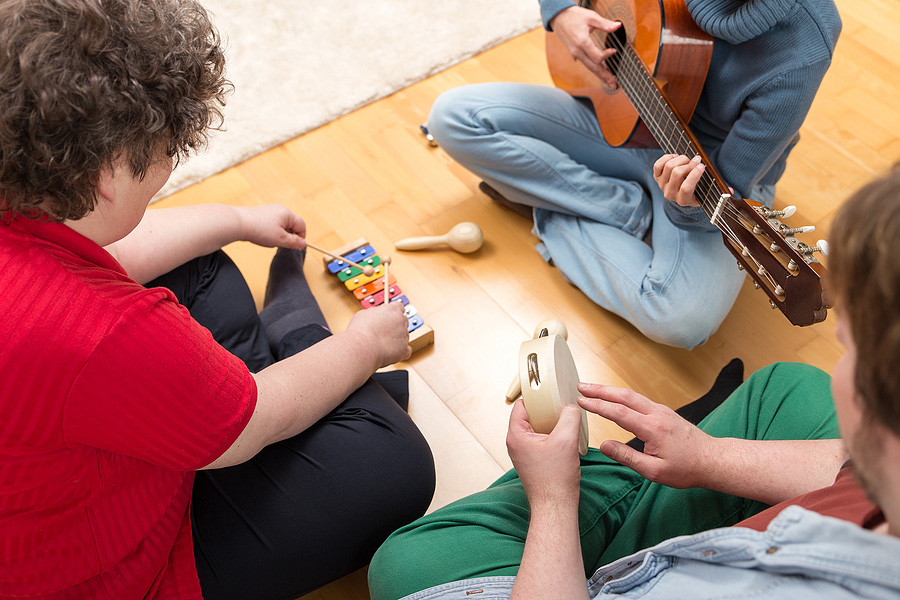Music Therapy
The idea of music as a healing influence is seen in the writings of Aristotle, Plato, and texts from ancient Egypt. Today, the American Music Therapy Association defines music therapy as the clinical and evidence-based use of music interventions to accomplish individualized goals within a therapeutic relationship by a credentialed professional who has completed an approved music therapy program. Music therapy helps individuals with mental health concerns explore and identify personal feelings, make beneficial changes in mood and emotional states, have a sense of control over life through rewarding experiences, practice problem solving, and resolve conflicts that strengthen family and peer relationships.

What music therapy can help with:
- Addictions (both process & substance)
- Stress & Anxiety
- Panic Attacks
- Compulsive Disorders
- Depression
- Grief & Loss
- Connection & Communication
- Insomnia
- Pain Management
- Memory & Cognition
How music therapy is different than listening to music or a music class:
- Non-intimidating practice – you don’t have to be “good” at music; no music skills are required to participate in music therapy, you just have to like music.
- No style of music is “better” than others – all music styles are valid in the therapy space. Receive necessary individualized attention from a board-certified music therapist and clinician who is sensitive and aware of triggers, musical styles, and knows what you need.
- Build acceptance, mindfulness skills, patience, distress tolerance, and self-compassion.
- Create a felt sense of safety and comfort, so you can trust yourself, others, and live life more at ease.
- Improve your self-image and help reconnect to yourself in a positive way.
- Allow for healing and relief when talking about current problems or past experiences is too overwhelming.
- Improve your overall wellness (emotional, mental, and physical).
